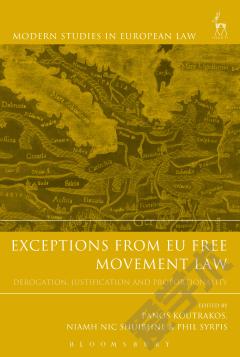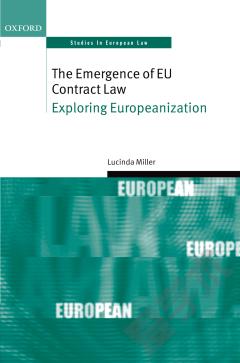Exceptions in EU Copyright Law —— In Search of a Balance Between Flexibility and Legal Certainty
----- 欧盟版权法中的例外
Information Law Series Volume 45 In a copyright system characterised by broad and long-lasting exclusive rights, exceptions provide a vital counterweight, especially in times of rampant technological change. The EU’s controversial InfoSoc Directive – now two decades old – lists exceptions in which an unauthorised user will not have infringed the rightholder’s copyright. To reform or not to reform this legal framework – that is the question considered in great depth in this book, providing detailed theoretical and normative analysis of the Directive, the national and CJEU case law arising from it, and meticulously thought-out proposals for change. By breaking down the concepts of ‘flexibility’ and ‘legal certainty’ into a set of policy objectives and assessment criteria, the author thoroughly examines such core aspects of the framework as the following: the justifications for exceptions, e.g., safeguarding the fundamental rights of users; the regimes established in legislation and case law for key exceptions; the need to promote technological development; the importance of avoiding re-fragmentation caused by uncoordinated national legislative responses to technological changes; the legal status of digital technologies that rely on unauthorised uses of copyright-protected works; and the pros and cons of importing a fair use standard modelled after that of the United States. In an invaluable concluding chapter, the author puts forward a set of reform proposals, articulating their advantages and responding to potential objections. In doing so, the chapter also identifies, synthesises and critically examines the various proposals that have been advanced in the academic literature. In its decisive contribution to the debate around the InfoSoc Directive and the rules that guide its implementation, interpretation, and application, this book isolates the contentious structural features of the framework and examines them in a critical fashion. The author’s systematised review of scholarly and policymaking proposals for increasing flexibility and legal certainty in EU copyright law will be welcomed by practitioners in intellectual property law and other areas of economic law, as well as by interested policymakers and scholars.
{{comment.content}}








 京公网安备 11010802027623号
京公网安备 11010802027623号